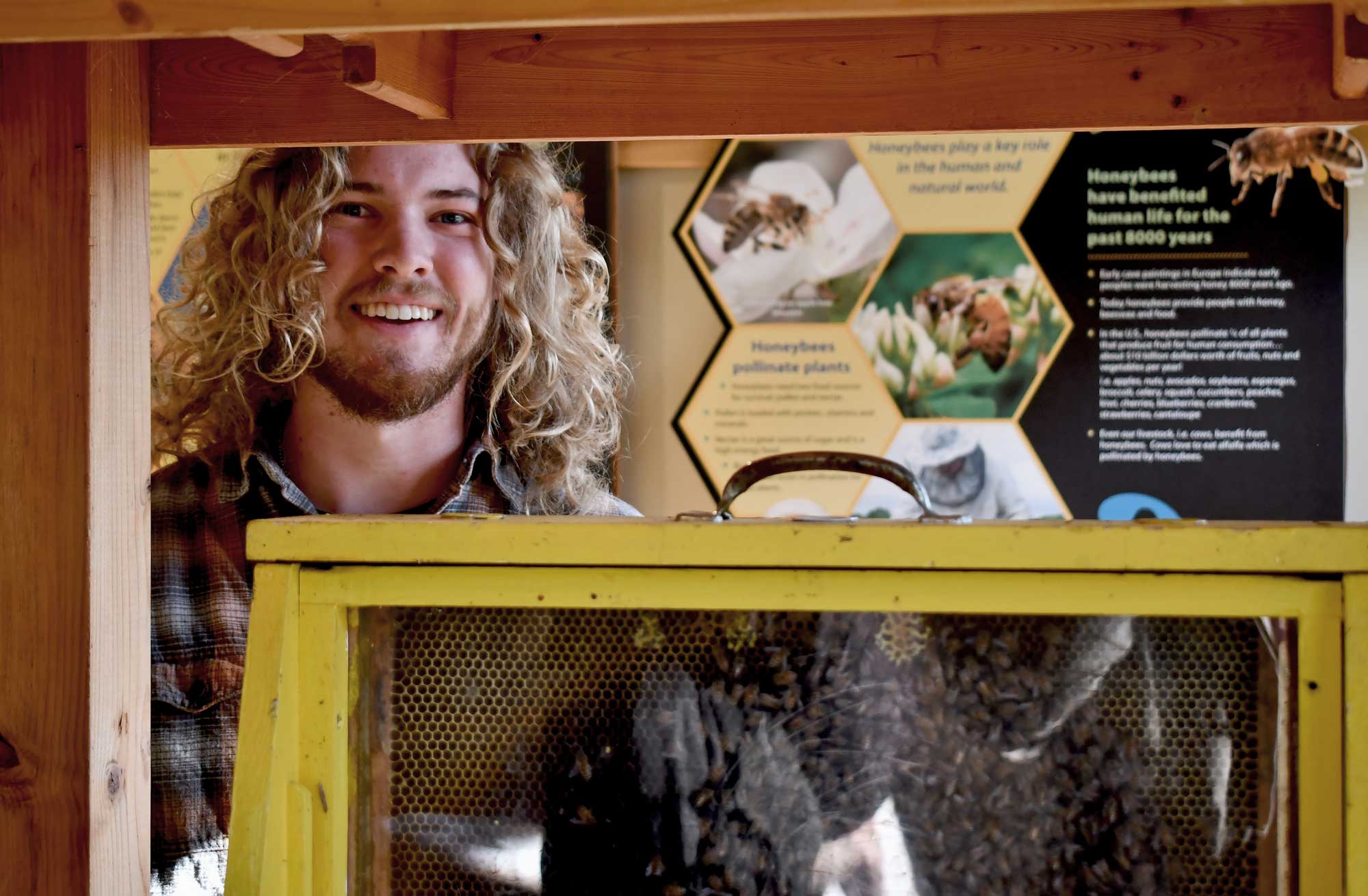From college to colony: Meet Plum Creek's new beekeeper

Being around bees can change you.
You start to notice the little things that affect bees like which flowers are in bloom, what weather conditions keep bees from flying, what temperatures can make a queen bee stop laying eggs or when it's time for the hive to split.
That’s what Dade Bradley of Wilmington discovered when he went away to college to earn a biology degree, and he became immersed in the world of beekeeping.
“Once you start keeping them, you really look at the world around you differently,” he said.
Now Bradley has been hired as the Forest Preserve District’s new beekeeper, and he will be tending to the live observational hive at Plum Creek Nature Center. He also will be on site for the free, monthly Meet a Beekeeper programs which begin on Saturday, May 10. Bradley will answer questions and talk about bees from 10 a.m. to noon. All ages are welcome.
“I’m excited,” Bradley said of the new opportunity. “I taught classes at college and was really involved in the community and that’s something I hope to bring here. I love talking to folks about bees, especially people who come wanting to learn about them.”
Where the buzz began
Bradley went to school at Blackburn College in Carlinville where bees first showed up on campus uninvited in 2017. Rather than remove beehives, the college decided to embrace them.
In 2018, the biology department and a few students started keeping bees. Bradley started school in 2019 and heard about beekeeping as one of the work options. Even though he had no experience with bees, he asked if he could tag along one day.
“I was there every day after,” he said. “I fell into it my freshman year and it’s a hard habit to kick. For four years, I was a beekeeper at Blackburn and helped manage more than 20 hives on campus.”
He also removed wild or feral hives from people’s yards and brought them to campus.
“They’re not as scary as you think,” he said. “They’re not out to get you or anything.”
He graduated with an environmental biology degree in 2023. Now he’s working on a master’s degree in plant biology and conservation at Northwestern University and the Chicago Botanic Garden.
Bradley attributes his acceptance into Northwestern to his beekeeping activities.
Lifetime hobby
“They’re really fascinating and they’re really amazing creatures,” he said of his bee pals. “They’re just a lot smarter than people really give them credit for. You can have 60,000 bees in a box that communicate through chemicals. Every single one of them knows what’s going on. And they communicate what resources are coming in and what they have available and what they don’t.”
In May or June, Bradley expects around half of the Forest Preserve’s hive to take off with the queen to find a new home. The remaining bees will pick a new queen.
“In the spring they will start swarming and they bring in pollen and raise new babies,” Bradley said. “They’re kind of restocking the hive after winter. They survive winter on what they’ve collected the previous year.”
In the spring they gather pollen and nectar. They store the nectar in the honeycomb cells and fan it with their wings until it dries down to 18% moisture.
“And then it’s honey,” Bradley said. “And it will store indefinitely. It’s good forever.”
Bees are super clean. They poop outside the hive and drag their dead outside, too. And they coat the inside of the hive with tree saps and resins to keep microbes and bacteria out.
“They’ll always be dragging garbage out of the hives if it’s in there.”
Bradley said he hopes to impart these facts and many more to the people who come to talk with him at the Meet a Beekeeper programs.
And while he plans on sticking to his beekeeping activities even after he earns his master's degree, he won’t make it a career.
“I think this will always be a hobby,” he said. “If it starts to feel like work, it loses its charm.”
